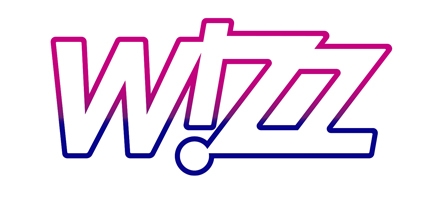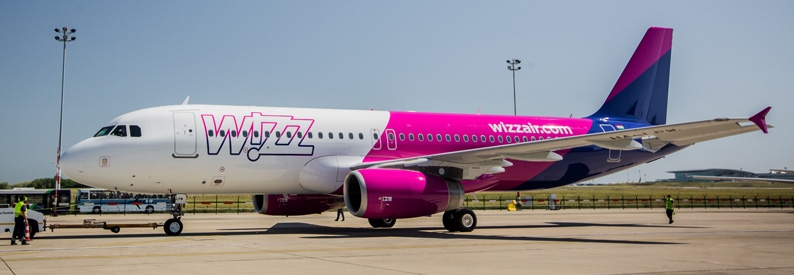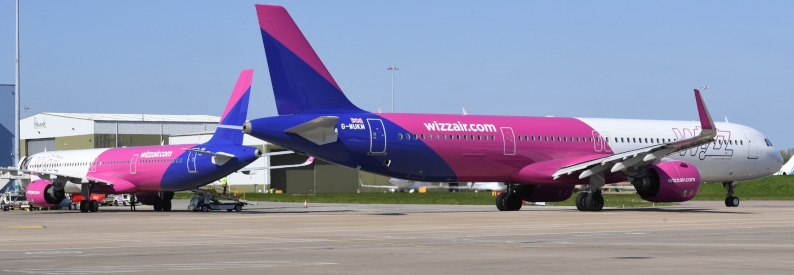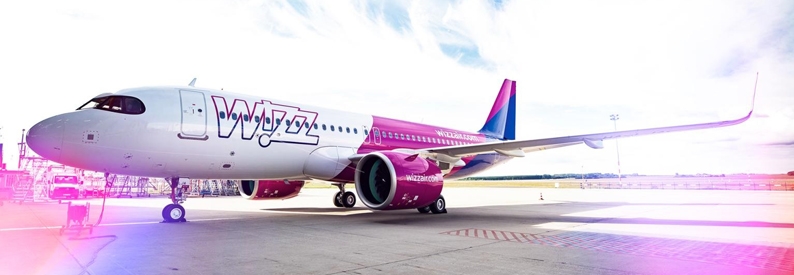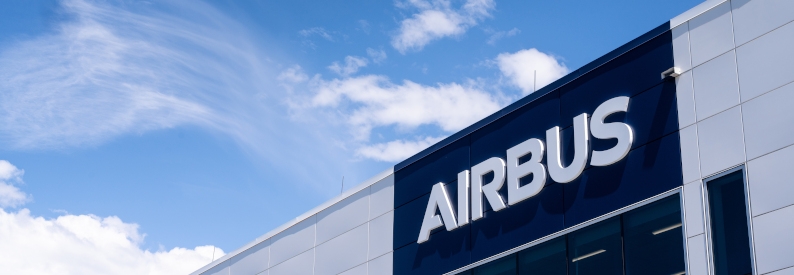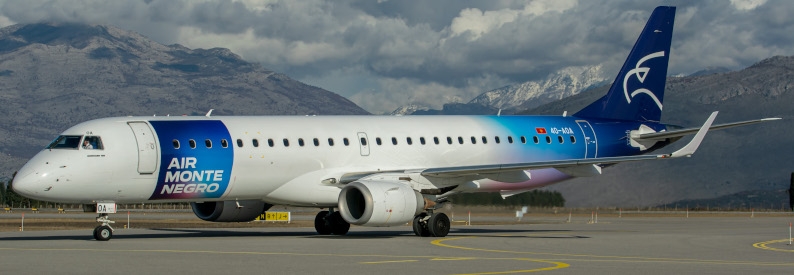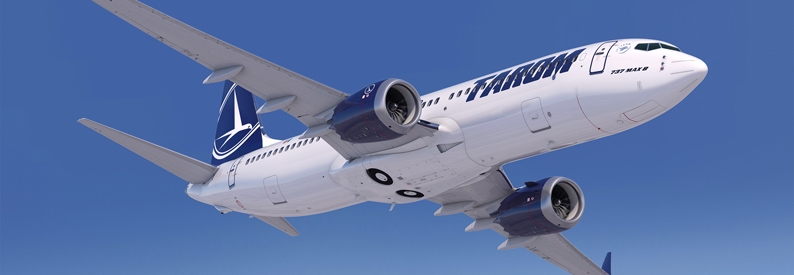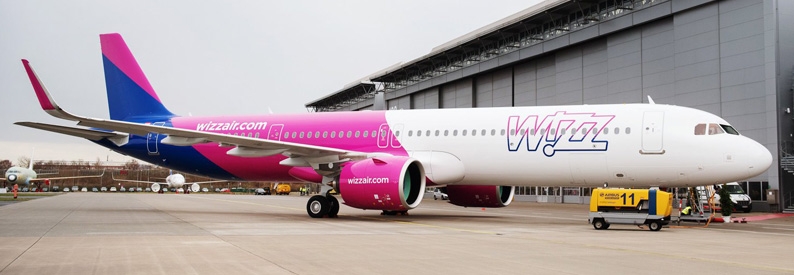Wizz Air Holdings is one of several airline groups grappling with significant numbers of A320neo Family-type aircraft going out of service for an extended period after RTX Corporation, owner of Pratt & Whitney, told customer airlines earlier this week that approximately 3,000 geared turbofan (GTF) engines fitted to in-service aircraft will need to be inspected.
In an advisory published on September 11, RTX expanded the number of PW1100 GTF engines needing inspection. The engines are used on A320neo family-type aircraft. When it first disclosed the metal contamination issue in the Pratt & Whitney-manufactured engines in late July, RTX estimated around 1,200 motors would require inspection. That number has now grown to approximately 3,000, or over 90% of the 3,200 GTF engines presently in service.
The engine inspections, which may take as long as 60 days, will take place between 2023 and 2026 and result in around 350 aircraft being parked each annually through 2026, although RTX says that figure will peak at about 650 planes in the first half of 2024.
-
Wizz Air Holdings has 124 A320neo Family aircraft fitted with PW1100 GTF engines, including fifty A321-200NX at Wizz Air; six A321-200NX at Wizz Air Abu Dhabi; eight A321-200NX at Wizz Air UK, and six A320-200Ns and fifty-four A321-200NX at Wizz Air Malta. In response to the RTX update, Wizz Air Holdings said its affected aircraft engines would be inspected throughout the remainder of 2023 and into 2024, likely causing the grounding of some of its aircraft. "Wizz Air is currently assessing the implications to understand the extent of the impact on its fleet with initial estimates indicating a potential capacity reduction of 10% for 2H FY24," reads a statement from the low-cost carrier.
-
Air New Zealand (NZ, Auckland International), which has sixteen A320neo and A321neo in its fleet, all fitted with PW1100s, said in a September 12 market update that it expected the inspections to significantly impact its schedules from early 2024. "Air New Zealand will work with Pratt & Whitney to implement the new maintenance plan and assess how this may affect the airline's future schedule. Pratt & Whitney has indicated that the revised maintenance schedule will be completed within the next two months. While there is no immediate impact to Air New Zealand's flights, it is likely the airline will need to make adjustments in the coming months, some of which may be significant." The carrier's narrowbody neo fleet services the trans-Tasman, Pacific Islands, and domestic markets.
-
Singapore Airlines Group low-cost carrier Scoot (TR, Singapore Changi) operates six A320-2000Ns and nine A321-200NX, all powered by the affected engines, and says at least four of its aircraft are impacted, potentially resulting in some future scheduling changes.
-
Lufthansa Group CEO Carsten Spohr told a Washington D.C. audience this week that scores of aircraft within the Group will be impacted. Lufthansa (LH, Frankfurt International) operates thirty-three A320-200Ns and seventeen A321-200NX, all fitted with PW1100 GTF engines. Lufthansa Group subsidiaries Brussels Airlines, Swiss, and Lufthansa CityLine also operate A320neo/A321neo type aircraft equipped with the affected engines. "Based on current assumptions, we expect on average, around twenty A320neo family aircraft will be grounded on any day in 2024. This amounts to less than one-third of Lufthansa Group's A320neo fleet and less than 5% of Lufthansa Group's overall A320 fleet. We are already looking into several mitigating measures, such as extending operations of existing A320 family aircraft, wet leases and sourcing additional spare engines."
